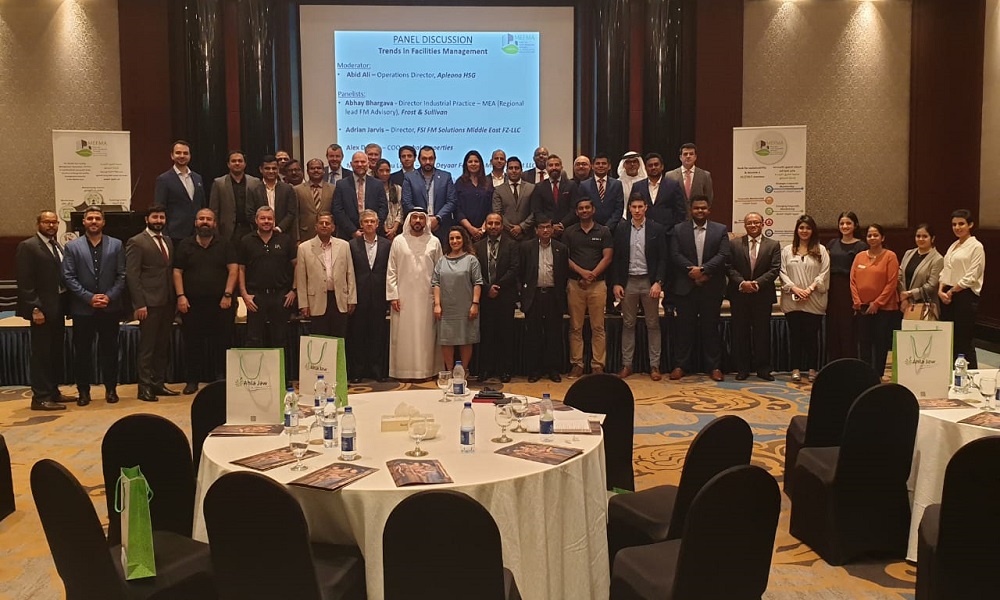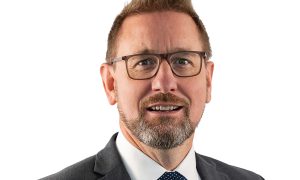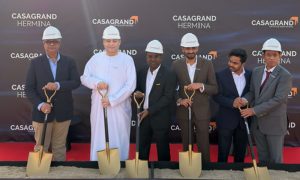MEFMA discusses regional facilities management market pulse in Dubai
Trends in the FM industry highlight importance of competitiveness, AI technologies, blockchain, energy management, smart facilities, & wellbeing in the workplace

The Middle East Facility Management Association (MEFMA), a dedicated platform for FM professionals, wider construction industry stakeholders, and owner associations, brought to the fore the latest developments in the region’s facilities management (FM) community during its recently concluded ‘FM Industry Market Pulse’ event held at the Dusit Thani Hotel in Dubai. The gathering hosted by the MEFMA Strategic Sub-Committee highlighted various technological innovations and their role in creating a sustainable FM sector in the region in the 21st century.
The regional FM industry’s market value continues to increase, with Saudi Arabia’s market value at USD 5.5 billion, topping the region in 2018, followed by the UAE at USD 5.4 billion, according to research from Frost and Sullivan. Egypt ranked forth with a total market value of USD 1.6 billion, followed by Kuwait at USD 1 billion, Bahrain at USD 800 million, and Oman at USD 300 million.
Jamal Lootah, MEFMA President, said: “As part of our ongoing bid to enhance FM practices in the region, we held the event to discuss the current industry pulse and highlight what needs to be done further to raise our global competitiveness. Technology such as AI remains to be a key ingredient in our quest to keep up with the international changes. As such, all of us must work closely together to roll out the necessary reforms to integrate modern tools into our processes and systems and implement the best practices to help accelerate the sector’s progress, in line with the UAE’s smart transformation initiatives.”
Ali Al Suwaidi, Vice President of MEFMA kicked off the event with a welcome speech, followed by a briefing video about Ahla Jaw, the event’s sponsor. Francisco Ramalheira, MEFMA’s Sub-Committee Leader and Director of Business Development and Marketing of Enova, proceeded with the event’s main topic and shed light on the key trends in the FM market’s pulse.
Ali AlSuwaidi, Vice President, MEFMA, said, “This event proved to be very timely and strategic as it primarily focused on discussions covering current market trends and conditions. We had quite a big turnout, with over 140 representatives joining us at this networking session. The high number of participants demonstrates the growing interest placed in facilities management and also affirms MEFMA’s role as the voice of the industry. Rest assured that we will continue to remain steadfast in our commitment to host activities like this networking session as part of the continuing move to create stronger communication ties and help understand newer trends and tools that will drive in more growth for the industry.”
Current trends have shown that some of the key priorities in the sector point to competitiveness as necessary for companies to remain profitable with a focus on being proactive to creating strategic partnerships, value creation, and leveraging use if new technologies. Blockchain, for instance, offers a cutting-edge technology that enables real-time visibility, security in contracts and accountability. Meanwhile, AI presents an opportunity to optimize complex processes and segregate tasks between humans and machines, as well as establish predictive models that chart possible solutions.
Energy management is another aspect which provides wide potential for the FM sector to expand its services considering the increasing prices of utility and the growing awareness to address the environmental impact of conventional energy resources. In addition, smart facilities deliver new efficient ways to manage buildings with advanced connectivity. More importantly, as organizations pay more attention to health and wellbeing, workplaces are becoming upgraded to suit these needs, opening a door for the FM industry to innovate and accommodate these emerging needs.
Ramalheira said: “The FM sector plays a vital role in the ‘smart transformation’ taking place in the UAE and worldwide, and stakeholders must be prepared for this important change. The Middle East continues to see strong growth, with the regional GDP projected to increase between 2 to 4 percent. Investments by the public and private sector in development projects are set to unlock new opportunities for the FM sector, with an eye on outsourced FM services, digitally enabled solutions, and provision of value-added services. However, we all must find solutions to challenges in our sector including the need for development of new talent, policy and regulation changes, and increased competition.”
Finally, Alistair Stranack, Managing Director of Rosmead Business Consulting DMCC, led the presentation of MEFMA’s published report titled ‘The Potential of Artificial Intelligence in the GCC FM Industry’, and highlighted growth opportunities for the sector with the use of the latest technologies. Stranack underlined the key aspects of AI analytics that can add immense value to current FM processes such as predictive maintenance and energy usage optimization using high-dimensional audio-video feeds, further noting that these applications have already been providing support in other high-value sectors such as transport and aerospace, where they deliver significant impact.
A panel discussion moderated by Abid Ali, Operations Director at Apleona HSG took place after the lectures which provided the participants with new insights on the latest trends in the Middle East’s FM community. The panelists comprised Abhay Bhargava, Director Industrial Practice – MEA (Regional lead FM Advisory) Frost & Sullivan; Adrian Jarvis – Director, FSI FM Solutions Middle East FZ-LLC; Alex Davies, COO, Dubai Properties; and Mohamad Abou Laban, CEO, Deyaar Facilities Management.
Content supplied to MECN by MEFMA

























